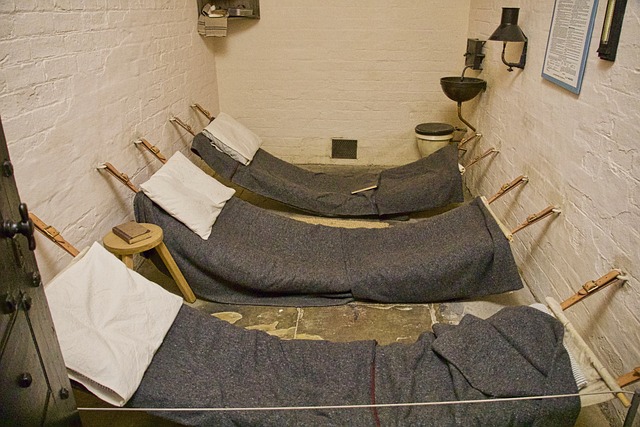Blood Alcohol Level (BAL) testing, relying on breathalyzer accuracy, is crucial in DUI cases. Veterans facing charges encounter unique challenges due to co-occurring conditions like PTSD, impacting decision-making and BAL test results. Lawyers must adopt a nuanced strategy, considering medical history to challenge test admissibility. Post-acquittal, reintegrating veterans into civilian life requires specialized support, including education on BAL testing procedures, counseling, job assistance, and veteran support group connections to address underlying issues.
“In many DUI cases, veterans face unique challenges due to their service. This article explores tailored strategies for defending against DUI charges, focusing on the intricate details of blood alcohol level (BAL) testing—a critical aspect in veteran-specific DUI litigation. We dissect the procedures and accuracy of BAL tests, addressing common issues that may affect outcomes. Additionally, we highlight tailored defense approaches, post-trial support, and reintegration programs for veteran offenders, emphasizing the importance of comprehensive legal and rehabilitative services.”
- Understanding Blood Alcohol Level Testing: Procedures and Accuracy
- The Unique Challenges Faced by Veterans in DUI Cases
- Tailoring Legal Defense Strategies for Veteran Clients
- Post-Trial Support and Reintegration for Veteran DUI Offenders
Understanding Blood Alcohol Level Testing: Procedures and Accuracy

Blood Alcohol Level (BAL) testing is a critical component in DUI cases, as it helps determine a defendant’s intoxication level at the time of driving. The most common method involves breath analysis using a device like a breathalyzer. This non-invasive procedure measures the amount of alcohol in one’s system by analyzing the exhaled air. However, accuracy can vary based on several factors: proper calibration and maintenance of the device, how closely the test mimics actual drinking conditions, and individual physiological differences.
Procedure-wise, after a traffic stop leading to a DUI suspicion, law enforcement will often administer a BAL test. If an individual refuses, consequences may include license suspension or even jail time. It’s crucial for veterans facing such charges to understand these procedures and challenge any potential inaccuracies to ensure a fair defense.
The Unique Challenges Faced by Veterans in DUI Cases

Veterans, while facing DUI charges like any other individual, often encounter unique challenges that can complicate their legal defense. Post-traumatic stress disorder (PTSD), for instance, may impact their ability to recall events, affecting alibi and memory tests during trials. This mental health condition, along with potential co-occurring disorders, can also influence decision-making and behavior, making the circumstances around a DUI incident more nuanced and complex.
Moreover, veterans often have a history of medical treatments and medications that could interact with alcohol, leading to altered blood alcohol level testing results. The use of prescription drugs or other substances to manage PTSD symptoms may further contribute to elevated BAC levels. Understanding these complexities is crucial in crafting a tailored defense strategy, addressing not just the legal aspects but also the unique challenges veterans face.
Tailoring Legal Defense Strategies for Veteran Clients

Many veterans face unique challenges when navigating legal systems, and DUI (driving under the influence) cases are no exception. A tailored legal defense strategy is crucial for these individuals. Veterans often have specific medical conditions or mental health issues that could impact their behavior and decision-making processes. Understanding these complexities requires a nuanced approach. Lawyers representing veteran clients should consider factors like post-traumatic stress disorder (PTSD), traumatic brain injuries, or substance abuse disorders, which might influence blood alcohol level testing outcomes.
By recognizing the unique circumstances of each veteran client, defense attorneys can develop effective arguments. This may include challenging the admissibility of blood alcohol level tests, questioning the reliability of such evidence, and presenting alternative explanations for the client’s behavior. A well-prepared defense takes into account the veteran’s medical history and ensures their rights are protected throughout the legal process.
Post-Trial Support and Reintegration for Veteran DUI Offenders

After a successful defense against a DUI charge, many veterans face the challenging task of reintegration into civilian life. This transition period requires tailored support to help them overcome any barriers resulting from their DUI offense and previous military service. One crucial aspect is providing education on blood alcohol level testing procedures, ensuring they understand their rights and the science behind these tests.
Reintegration programs should focus on offering ongoing counseling, job placement assistance, and access to veteran-specific support groups. These initiatives facilitate a smoother transition, addressing any underlying issues that led to the DUI incident, be it stress management, substance abuse treatment, or adjusting to civilian regulations.
Veterans facing DUI charges require specialized legal defense strategies, given the unique challenges they encounter. By thoroughly understanding the complexities of blood alcohol level testing and tailoring legal approaches for each client, attorneys can provide effective representation. Post-trial support is also vital to help veterans reintegrate into society after their legal troubles, ensuring a more positive outcome.






